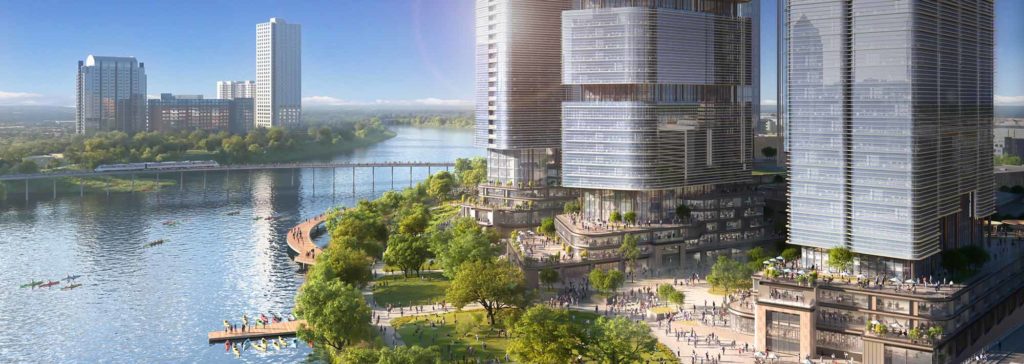
The most effective way for Austin to address housing un-affordability, climate change, and traffic safety, is to allow more housing within walking distance of high quality transit in the city. An overall increase in the supply of housing in the city will relieve upward price pressure. Denser housing near transit will allow for more people to live healthy, low-carbon lifestyles, and help the community reach its stated goals set forth on transportation mode share and opportunity for all residents.
At their December 1st meeting, the Austin city council passed four major items that – while not addressing every shortcoming of the outdated and inequitable 1984 land development code – move city policy in a better direction.
The city council passed an ordinance that allows residential use in commercial zones, unlocking tens of thousands of additional units in housing capacity. They also addressed the unfair treatment of missing middle housing in the permitting process, by allowing triplexes and fourplexes to be subject to the same standard as single family homes, and by ordering the creating of a ‘site plan lite’ for complexes with less than 16 units. They also relaxed Austin’s ultra-restrictive compatibility standards and parking mandates on major corridors, which cost the city more housing than any other land use regulation.
Finally, the city council approved a massive project on the former site of the Austin-American Statesman, which will soon house thousands of people, create jobs, and provide recreation in Austin’s densest and highest opportunity neighborhood. The project now has the option to be even taller, up to 725 feet, expanding its benefits to even more people.
It is important to remember that Austin’s land development code is still much more exclusionary than those of its peer cities. Major reforms still need to be made. The housing crisis in Austin continues. Bolder reforms, including a complete elimination of inequitable compatibility regulations, parking mandates, and single-family-only zoning are necessary.
Council Member Chito Vela has offered to take another stab at reforming compatibility in the coming year as a new council takes charge at city hall. Farm&City will be there again, advocating for the most equitable and sustainable version of policy. The future of urban landscapes in tune with nature is denser, connected with high-quality transit, and free of traffic deaths. There is a lot of work to be done. But forward progress is undeniably a good thing, and should be celebrated by all who work tirelessly to improve public policy in Austin and across all cities.
On Thursday, December 8th, another monumental improvement could take a big step forward with Austin City Council poised to approve initial adoption of the Equitable Transit-Oriented Development plan and initiate code changes to make it easier for significantly more people to live within walking distance of high-quality transit, something for which we have long advocated.
